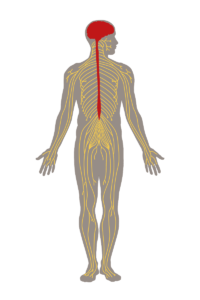All About the Vagus Nerve
The vagus nerve is a popular topic in the wellness industry – especially with more and more people looking to manage their stress and health with meditation and breathwork. What is the vagus nerve and why should we care about it?

The Vagus Nerve
The vagus nerve is the 10th cranial nerve (CN X) in our body and is part of the autonomic system. It starts in the medulla of the brain and runs its course through the face, thorax and the abdomen. This means it affects functions in your body that don’t require conscious or voluntary input such as breathing, sweating or digestion. It plays multiple roles as a sensory, motor and parasympathetic nerve. It innervates our skin, muscles and organs such as the larynx, stomach, and heart.
How it Affects Our Body
The vagus nerve helps the body alleviate stress when it is in “fight or flight” mode and support it towards a “rest and digest” state. When the vagus nerve is experiencing dysfunction it can cause symptoms such as
- Nausea/vomiting
- Chronic mood disorders such as depression or anxiety
- Changes in appetite
- Difficulty speaking or swallowing
- Bloating
- Abdominal pain and reflux
- Affect blood pressure and heart rate
There are current studies investigating how vagus nerve can various health conditions affect our mental and gut health such as chronic headaches and migraines, Alziehmer’s, Chron’s disease, IBS, and auto-immune/inflammatory such as Rheumatoid arthritis.
Wellness Practices for the Vagus Nerve
We can focus on lifestyle changes to support the health of our vagus nerve by mitigating stress, which affects the nervous system and supporting our physical and mental state. We can support our vagus nerve by exercising, eating balanced meals to support our gut health, and participating in mind-body practices such as yoga, Pilates, meditation or breathwork.
